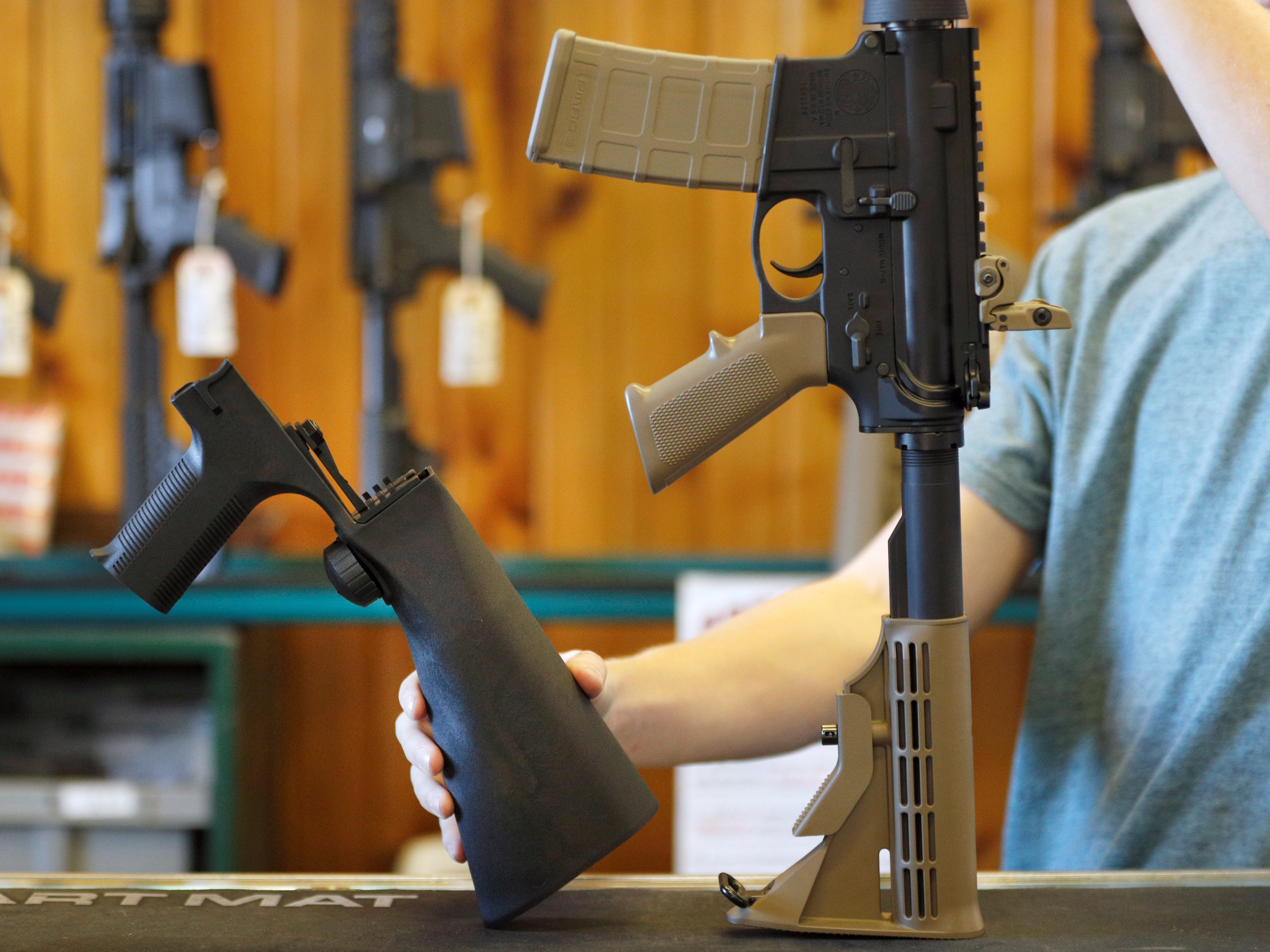- Republican leaders have called for a regulatory solution to bump-stock devices from the Bureau of Alcohol, Tobacco, Firearms, and Explosives. The ATF has previously said it does not have the authority to regulate such devices, which allow shooters to fire semiautomatic rifles at a faster rate. A new, bipartisan bill would force the ATF to regulate bump stocks.
WASHINGTON – Debate about “bump stocks” is not going away, despite little action taken by congressional leaders and the Department of Alcohol, Tobacco, Firearms, and Explosives after the devices were used in the deadliest mass shooting in modern US history.
House Speaker Paul Ryan earlier this month said the ATF should regulate bump stocks. But with the ATF having previously said it does not have the authority to do so, a bipartisan group of lawmakers are planning to introduce a bill that would force the ATF to regulate bump stocks.
A bump stock is a device that allows users to fire a semiautomatic rifle – in which the trigger must be pulled for every shot – at a faster rate without converting the firearm to be fully automatic. The shooter in the October 1 Las Vegas massacre had bump stocks attached to at least a dozen rifles found inside his hotel room.
The new bill amends the National Firearms Act, which regulated fully automatic firearms and outlawed new ones made after the law's implementation. "A reciprocating stock, or any other device which is designed to accelerate substantially the rate of fire of a semiautomatic weapon," would be added to the books.
The bill, sponsored by Democratic Reps. Dan Kildee and Dina Titus as well as Republican Reps. Dave Trott and Brian Fitzpatrick, would require people who purchase or possess bump stocks to register with the ATF, submit to a background check and fingerprinting, and pay a $200 registration fee.
The Closing the Bump Stock Loophole Act would solve the quandary of whether the bump-stock issue should be fixed by legislative or regulatory action by placing the ball in the ATF's court, Kildee said in an interview with Business Insider on Monday.
"I understand that there's this tension between whether or not the ATF has this authority to regulate these things or not," he said. "My view on this is Congress can end that conversation simply by passing legislation that makes it clear." He added: "If there's any debate whatsoever about whether or not these things are already regulated under the law or theoretically could be considered to be regulated under the law, well let's take that question away."
The bipartisan group of lawmakers crafted the bill under "guidance and advice" from the ATF Association, an organization consisting of more than 400 current and former ATF agents.
There have already been multiple attempts in Congress to ban bump stocks. Reps. Mike Thompson and David Cicilline introduced a bill following the attack in Las Vegas, but it was backed only by Democrats. A bipartisan effort by Republican Rep. Carlos Curbelo of Florida and Democratic Rep. Seth Moulton of Massachusetts lost traction once Ryan said he preferred a regulatory fix to a legislative one.
Removing the question of whether the ATF can regulate bump stocks and similar devices would be an end around to the hurdles the past bills were unable to clear.
Whether the Republican leadership will take up this new bill is still unclear.
"The power of a good idea should prevail and that the common-sense aspects of our legislation gives those people, particularly those in leadership who have been saying they wanna do something, a way to do it," Kildee said.
AshLee Strong, Ryan's spokeswoman, said, "The Judiciary Committee is looking into this and having discussions with ATF about it."
Some elements of the bill could face backlash from gun-rights advocates. The National Rifle Association has a strict stance against registrations for firearms, saying they do not prevent or solve any crimes. The NRA does, however, support background checks for firearm purchases from licensed dealers.
